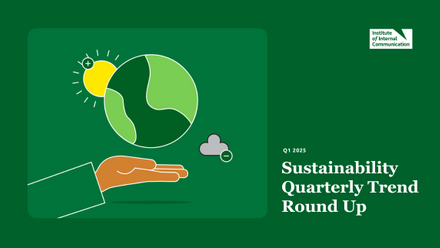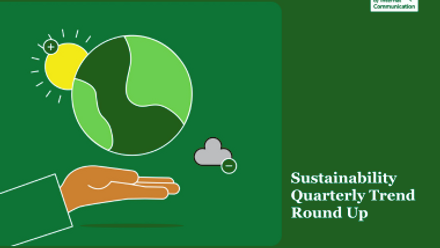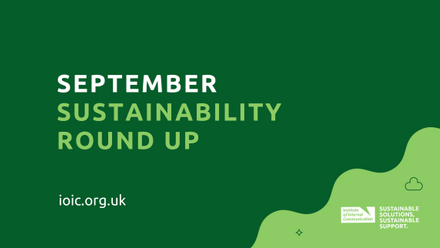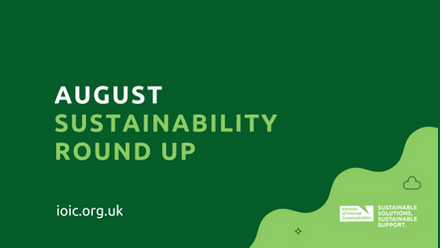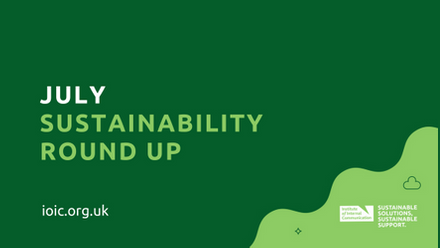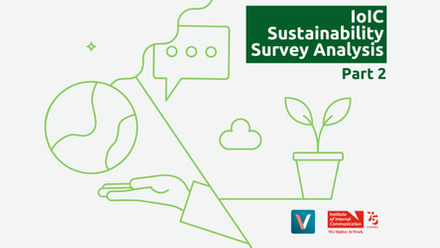Community sustainability
The climate crisis highlights how deeply interconnected our local and global communities truly are. And the businesses egregiously placing profit over people and planet are increasingly getting called out for it.
The world's largest asset manager, BlackRock, for instance, faces an OECD complaint from environmental and Indigenous rights groups for investing over $5 billion (£4.17 billion) in agribusinesses linked to Amazon deforestation.
By potentially undermining global ecosystems and Indigenous groups’ livelihoods, and ignoring the critical importance of sustainable, community-conscious investment strategies, BlackRock risks damaging its reputation as a responsible global investment leader.
They’re not alone in this, of course. Other global brands and businesses are getting called out for misleading customers and investors by greenwashing and backtracking on their climate commitments. McKinsey has recently been accused of contributing to the climate crisis with its “capitalism incarnate” approach – which has also alienated internal stakeholders.
Despite the imminent prospect of a Trump 2.0 presidency, how long can some of the big global players continue to only pay lip service to environmental and ethical considerations? With the spotlight increasingly on them, the significant reputational risks for prioritising financial returns over human and planetary wellbeing won’t be going anywhere, after all.
Organisational sustainability
The torrential rain and flooding which hit Spain’s Valencia province at the end of October was the deadliest in modern Spanish history, shocking the world with the extent of the devastation wrought in a comparatively short amount of time,
With some local businesses’ day-to-day operations still affected by the disaster, it was something of an eye-opener to read the 2024 EY Global Climate Action Barometer, which reveals how the majority of large firms around the world aren’t making adequate contingency plans for climate change risk.
Yet the benefits can be manifold when it comes to ensuring you have an organisational transition plan in place to help mitigate these risks.
This is mainly because doing so tends to bring together key stakeholders such as the chief risk officer, the head of strategy, as well as climate and sustainability leaders to analyse the data.
Engaging these leaders and encouraging conversations can stimulate innovative thinking, which can ultimately propagate meaningful behavioural change inside our organisations.
In addition, it provides a window to the future that can benefit longer-term organisational strategy.
UK companies fare comparatively well in the EY study when it comes to adopting climate change risk mitigation plans – so it’s worth building on this positive momentum by continuing to convene and foster the right internal exchanges. We can be the catalysts to ensure our organisations and colleagues are equipped to deal with whatever the climate emergency brings our way, to the best of our collective abilities.
Economic sustainability
In today's evolving commercial landscape, more and more businesses are tuning into the benefits of transitioning from pure profit-driven models to purpose-driven approaches that balance financial success with social and environmental responsibility.
But what are the key opportunities for us as internal communicators to help expedite this? In this Forbes article, Joel Carboni, a pioneer in advancing sustainable project management practices, outlines some practical steps to help organisations begin the shift to a more purpose-driven approach. These include:
- Facilitating transparent dialogue about sustainability goals across all organisational levels
- Helping to clarify and communicate our organisations’ specific purpose and impact objectives
- Creating platforms for employee engagement in sustainability initiatives
- Developing communication strategies that showcase how purpose-driven approaches create value beyond financial metrics
- Supporting the narrative of sustainability as a strategic opportunity rather than a compliance burden
By championing these efforts, we can play a crucial role in embedding purpose throughout our organisations, inspiring cultural transformation and aligning teams around meaningful, impactful goals. By championing the wider integration of sustainability into day-to-day core business practices, we can play a key role in driving innovation – and ultimately potential competitive advantage.
Environmental sustainability
The 10 New Insights in Climate Science report for 2024/2025 summarises the most stand-out climate change-related research findings from leading scientists around the world.
One of the disturbing developments it highlights is the degree to which, beyond extreme weather, the climate emergency is increasingly leading to greater instances of miscarriages, premature births and maternal health risks in developing countries.
Critically, most national climate plans overlook these human health consequences.
While wealthy nations may feel insulated, the report reveals how rising temperatures are fundamentally threatening future human reproduction, infrastructure and survival, with billions potentially pushed out of habitable temperature zones. These silent, systemic changes bring into sharp focus the urgent need for comprehensive, equitable climate action.
To keep colleagues attuned to the need for lasting and impactful behavioural change in the more privileged corners of the world, it’s worth sharing the less ‘obvious’ narratives on how the climate crisis is causing profound, yet often invisible, human impacts – particularly for vulnerable populations.
Personal sustainability
Should considering a ‘data diet’ – or even embracing ‘digital sobriety’ – be on our collective radars?
These are emerging trends that some consumers are tuning into as part of their personal endeavours to moderate their online carbon footprint. By mindfully reducing unnecessary data usage, individuals are increasingly aware that they can help mitigate the significant environmental impact of today’s digital lifestyles.
Platforms like Digiconomist help people understand the unintended consequences of digital trends, and try to track – where possible, in the absence of reliable figures from the tech behemoths themselves – the wider effects of their tech usage.
But there might be learnings here for a more responsible corporate approach, too.
In business, digital sobriety involves an in-depth reassessment of work practices and tools, favouring the most economical – and ethical – solutions. This article shares three best practices for encouraging a more responsible digital workplace.
All of our colleagues can actively participate by adopting best usage practices within the collaborative tools of the digital workplace – and we can communicate the change needed when it comes to helping them reduce their daily footprints, both inside and outside our organisations.

